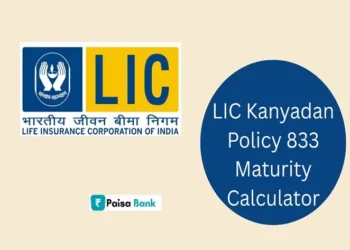Investment without risk! It is something that everyone wants. Who does not want to earn extra money without any risk factors? index funds are the best option. The person who has a piece of complete knowledge about funds and investment knows how to invest in a nifty index fund directly. But to all the people who are new in the field of investment. This is the perfect article where you can find the answer to all of your questions!
In this particular article we are going to gain knowledge about index fund investment, top index funds, investing in mutual funds for beginners, how can you invest in index funds, and how to invest in nifty index funds directly.
What is a Nifty Index Fund?
Nifty Index Funds are mutual fund schemes whose strategies are built using “Nifty” as an index. They are top index funds that use a passive approach in which their portfolio is built using a benchmark. As “Nifty Funds”, these schemes build their portfolios using the “NSE Nifty” as a benchmark. The performance of top index funds is determined by the performance of the Nifty.
So this was a brief overview of the nifty index fund. So the first question that will pop up in your mind is how to invest in a nifty index fund directly. Followed by a list of top index funds?
Also read: How To Invest Online In Direct Mutual Funds
How to Invest in Nifty Index Fund Directly?
The answer to how to invest in a nifty index fund directly is quite comfortable for everyone in this digital era. Investors can invest in index funds directly by visiting the fund house’s official website or through distinct mobile applications.
1. Investing through index fund investment official site
If you want to invest in index funds directly through the index fund investment official site then follow these steps:
- Sign-in ClearTax.in
- Enter the investment amount and period of investment
- Enter all the details and get your KYC done in less than 4 minutes.
- The list of top index funds will pop up on the screen. Now choose the best index fund investment scheme.
2. Invest in index funds via a mobile application
If you want to invest in index funds directly via a mobile application, then follow these steps:
- Download the corresponding mobile application.
- Register in the application by providing the mandatory contact information.
- Enter all the details and get your KYC done in less than 4 minutes.
Once, the verification is completed. A list of top index funds will pop up on the screen. Now choose the best index fund investment scheme. Different index fund investment plans have distinct offers. Before investing, be aware of key criteria to make an educated decision.
So this is how to invest in a nifty index fund directly.
Keynotes Before Choosing the Correct Plan to Invest in Index Funds
This is the list of a few points that you should keep in mind before choosing the correct plan to invest in index funds:
1. Investment Goal
The primary goal to invest in index funds is to replicate the performance of the market. As a result, they are not appropriate for investors seeking market-beating returns.
As a result, before choosing the index fund investment plan, investors must first evaluate their financial goals. Index fund investment is an outstanding choice for investors who want to replicate the market’s performance.
2. Tracking Error
It is the difference between the returns provided by an index fund investment and those generated by the benchmark index fund investment. As a result, this score evaluates how successful is the index fund investment plan, tracked by the fluctuations of the underlying benchmark. If there is less tracking inaccuracy in the index fund investment plan, then that is the better plan to invest the index funds.
3. Expense Ratio
An expense ratio is an annual fee levied on investors by fund houses to pay the costs of running a certain index fund investment plan. Management fees, advertising charges, and other costs are examples of such expenses. This yearly charge has a direct influence on an investor’s net annual returns. As a result, before choosing the top Index funds plan, it is critical to evaluate this factor.
Advantages of Index Fund Investment
Some of the advantages of index fund investment and how to invest in nifty index fund directly are mentioned below:
1. Lower Risk Factor
The equities in the index fund investment are identical to those in the Nifty index fund, you benefit from broader market exposure, thus diversifying your portfolio and lowering risk.
2. Consistent Profits
The returns in index fund investment may be larger in comparison to individual stocks or industry-specific stocks.
When you invest in top index funds, the returns on these index fund investments are more consistent, and the potential for future development is limitless.
3. Bias’s Elimination
It is difficult to set aside your emotions while selecting investment companies, whether you are a fund manager or an individual investor. Because an index fund investment is meant to match the Nifty index fund, there is no emotional bias to select the top index funds portfolio as it is fully objective.
Also read: 5 Investing Tips And Guide For Beginners
Clues to Know Before Investing in Mutual Funds for Beginners
Since this is the tip for investing in mutual funds for beginners, you must first identify your financial goal and get familiar with the many sorts of possibilities. Here are some pointers that will assist you to figure out how to approach investing in index funds:
1. Defining Your Investment Goal
It is usually a good idea for investing in mutual funds for beginners to invest in mutual funds with a specific investing goal in mind. Depending on your financial goals, the fund managers will invest your money in either equity or invest in index funds.
If you want to invest in index funds to buy a house, you must invest in index fund investment equity-based instruments over a lengthy time. Debt-based investing solutions should be adequate to meet your short-term objectives to invest in index funds.
2. Achieving Short-term Objectives
A large-cap/mid-cap index fund investment is not for you if you have a short-term financial goals plan. A debt-based mutual fund is best suited for investments with a time horizon of fewer than five years. To invest in index funds, you should invest in government bonds, commercial papers, and treasury bills, among other things.
Also read: Direct Vs Regular Mutual Funds – Which One Is Better
Key Points Before Investing in Mutual Funds for Beginners
Points that need to be considered before investing in mutual funds for beginners are:
1. Set a Financial Objective
The importance of defining your financial goals, budget, and time horizon in your investment cannot be overstated. If you want to invest in index funds or do you have doubts about how to invest in a nifty index fund directly? This will help you choose how much money you can set away for investing, and you must also invest depending on your risk tolerance. Investing usually works best when done with a goal in mind.
2. Select the Appropriate Fund type of Plan to Invest in Index Funds
To choose the best mutual fund category or if you are investing in mutual funds for beginners. You must do more than just read about the various types of mutual funds. This is the tip for everyone, experts often recommend a balanced or debt fund since it has few risks while providing consistent returns.
Top 3 Plans for Investing in Mutual Funds for Beginners
Here is the list of the top three plans for investing in mutual funds for beginners:
| S. No. | Name of the Funds | Net Asset Value | Minimum Systematic
Investment Plan |
Expense Ratio |
| 1 | Quant Active Fund | Rs 361.36 | Rs 1000 | 0.57% |
| 2 | Mirae Asset Tax Saver Fund | Rs 29 | Rs 500 | 0.30% |
| 3 | PGIM India Midcap Opp. | RS 37.29 | Rs 1000 | 0.45% |
Top 3 Index Funds in India 2021
Here is the list of three top index funds in India:
| S. No. | Funds Name | Expense ratio | 1 month | 6 month | 1 year | 5 year |
| 1 | Franklin India Index Fund | 0.68% | -2.62% | 7.62% | 26.09% | 111.86% |
| 2 | IDBI Nifty Index Fund Growth | 0.9% | -2.68% | 7.59% | 25.31% | 108.76% |
| 3 | Aditya Birla Sun Life Index Fund Growth | 0.59% | -2.66% | 7.74% | 26.39% | 114.05% |
List of Global Top Index Funds
Here is the list of globally top index funds:
- Northern Global Sustainability Index Fund (NSRIX)
- AQR Global Equity Fund Class I (AQGIX)
Conclusion
This article is a brief overview of questions related to investing in mutual funds for beginners, how to invest in a nifty index fund directly? How to invest in index funds, list of top index funds.
If you are new to mutual funds and investments! Then you should read all the terms and conditions before investing.
Invest in Nifty Index Fund Directly – FAQs
Is investing in mutual funds for beginners, good?
Ans. Yes, investing in mutual funds for beginners is a good option. But all the beginners should go relatively for low-risk and high-quality funds.
Brief overview about how to invest in nifty index fund directly?
Ans. The answer to the question of how to invest in nifty funds directly is via mobile application and through the index fund investment official site.
How to invest in a nifty index fund directly via the mobile application?
Ans. Here is the answer to your question about how to invest in a nifty index fund directly via a mobile application:
- Download the corresponding mobile application.
- Register in the application by providing the mandatory contact information.
- Enter all the details and get your KYC done in less than 4 minutes.













